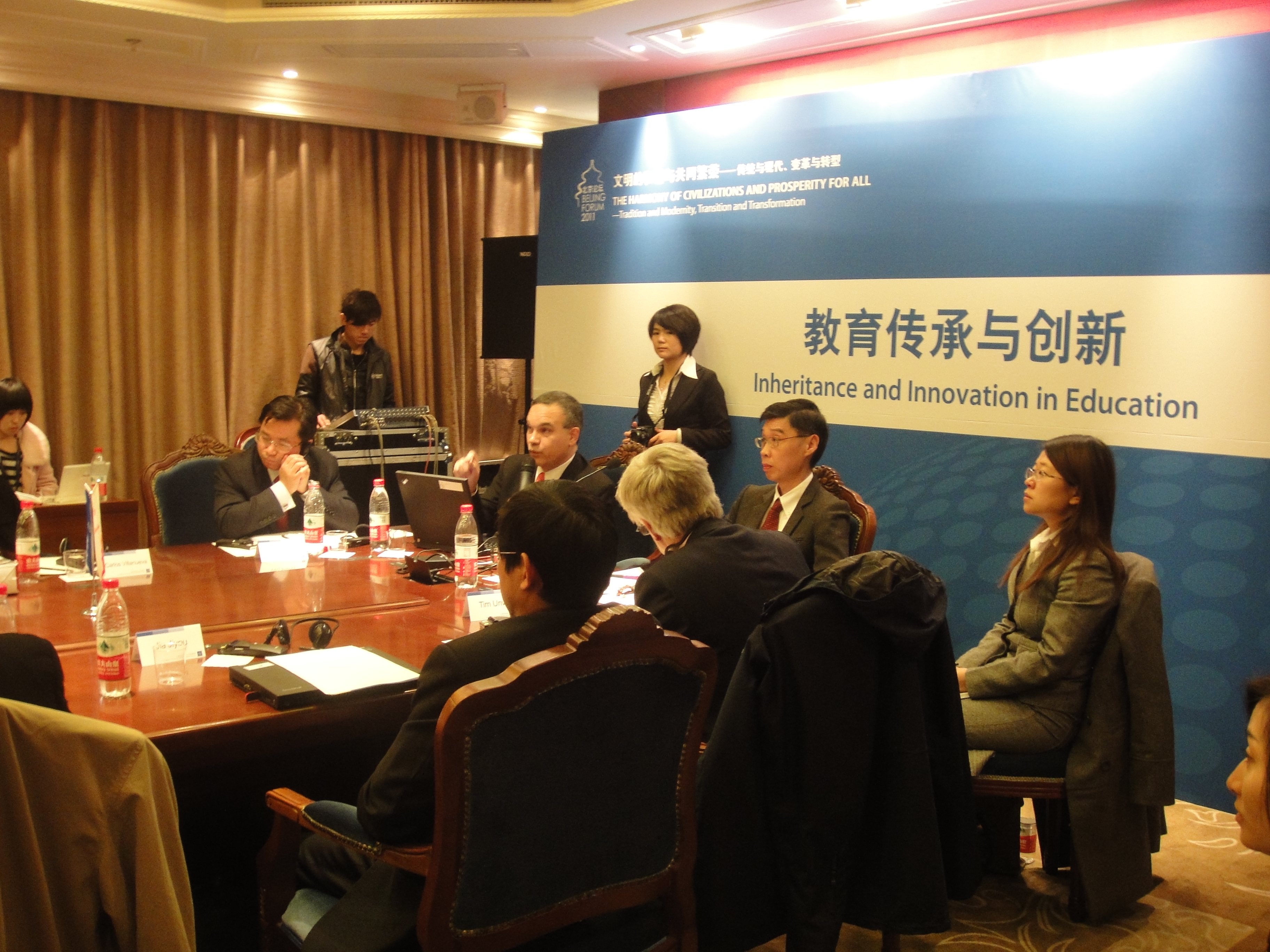Peking University, Nov. 9, 2011: The second session of the Beijing Forum Education Panel was hosted at New Meeting Room, Yingjie Exchange Center, Peking University on the morning November 5. Dr. Looi Chee-kit of Nanyang Technological University and Professor Tim Unwin of Singapore co-chaired the session. Scholars from Mexico, Germany, Finland, Singapore, Norway and China shed light on many issues regarding the power of educational technology.

The main topic of this session was “educational technology”. In the first half of the session, several scholars stressed the necessity and importance of using E-learning in the enterprises and universities. E-learning is short for “Electronic Learning”, which means learning mainly through the Internet. It makes full use of the completely new communication mechanism and learning environment of rich resource provided by the modern information technology. This new means of learning has made lifelong studying possible.
By the end of 2009, Business-Education Research Centre at PKU investigated and evaluated domestic corporations’ E-learning projects. Professor Wu Feng presented the ten research aspects of corporation e-learning according to the analysis, including why corporations needed e-learning, how e-learning influence the lifelong-learning in the corporations and so on. He put forward the importance of learning and technology for corporation human resource development.
E-learning is not only widely used in the corporations, but also becoming more and more important in the universities. Carlos Villanueva of the Virtual University in Mexico, introduced the in 1943 founded “technologic de Monterrey” system. The Virtual University was established in 1989 and began to adopt the distance education model in 1989. The design of the courses pays attention to the quality of education and concerned the students’ needs carefully.
The next issue discussed was how to make good use of ICT in education? Nicolas Apostolopoulos shared his experience in e-learning in the past 15 years. He advocated that the universities should make the education available for more students by using the satellites and Internet. He emphasized that the importance of E-learning Centers could provide necessary solutions and support.
Despite the high respect and status of higher education in Nordic societies, the need for change is global, and particularly this concerns higher education systems. Professor Timo Aarrevaara from Helsinki University of Finland gave an overview of the tradition and modernity of the higher education in Northern Europe. The analysis of 30 countries showed that the reason why ICT cannot develop well in universities is that senior teachers are reluctant to use the new technology. Professor Aarrevaara called for more policy support which would be necessary for ICT application in education.
In the history of human education, technology advancement often leads to educational innovations and reforms. Jia Jiyou from PKU Graduate School of Education indicated that high performance-price ratio would lead the educational innovation in traditional classrooms. He gave examples of typography, blackboard, chalks, and computers, and emphasized the importance of individual learning.
Looi Chee-kit from Nanyang Technological University pointed out that practice is in shortage in the whole part of education and shared his ideas on the need for improvement in in-class practices.
At last, Oystein Johannessen from Norway Ministry of Education and Research analyzed and concluded technology-based innovation in schools, pointing out lessons learned and implications for policy and practice. He and other researchers communicated with issues including how to develop ICT application by teachers, the hidden value of ICT application, and the way to identify individualized learning result and so on.
Reported by: XuYang
Edited by: Li Xiaomeng